'My heart sank' - BBC Scotland's Olympics team forced to isolate in Tokyo
- Published
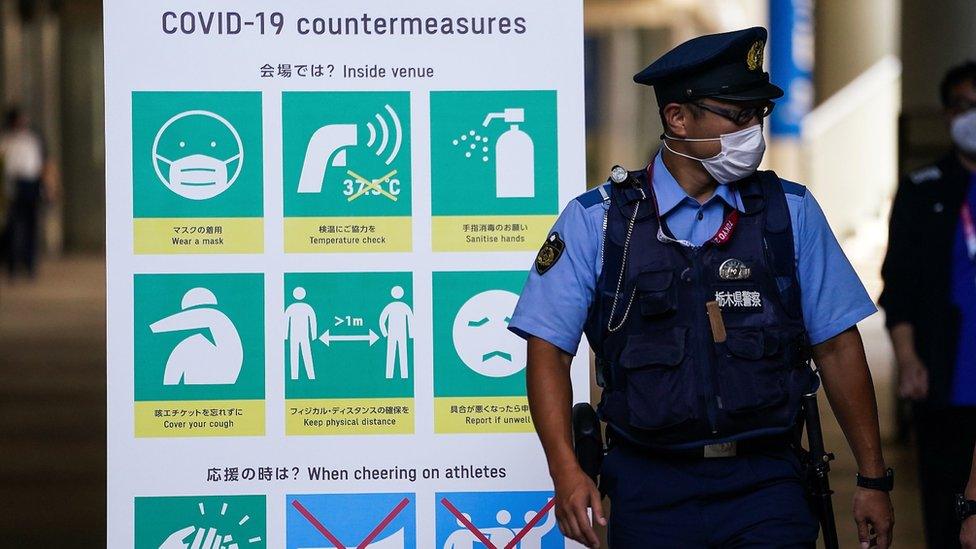
It was always going to be a Games with risks.
Athletes were aware and so too were journalists. But the call of the Olympics is strong.
For most competitors it's the pinnacle of their career - four years of preparation for a month against the best in the world. It can often be a similar story for those who cover the action.
At BBC Scotland we prepared for well over a year for the Games in Tokyo - travel arrangements, who to send, accommodation, logistics on the ground. The list was almost endless.
But the most time-consuming aspect for us this time, like so many other organisations, was the Covid protocols.
In order for Japan to safely stage the Games, a year after they were scheduled to take place, strict rules were applied to those who would travel. Completely understandable.
Mitigating risk was the key to selling the safety of a Games that many believed should have been cancelled instead of postponed.
Given those risks, BBC Scotland scaled back on the numbers of those who would travel. In the end it was decided on a team of three - myself, my producer and a cameraman.
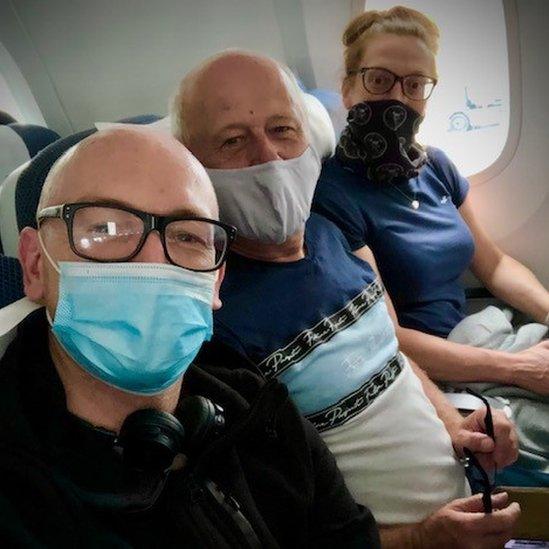
We were to be despatched to broadcast on the success, or otherwise, of the Scots in Team GB and provide an insight into what an Olympics being staged during a pandemic would look and feel like.
We recorded our temperatures for 14 days before flying and took daily PCR tests for three days before our travel date. Thankfully all were negative.
On arrival into Tokyo the scale of the counter Covid operation became clear.
An army of officials checked paperwork as we were moved, with great efficiency and welcoming smiles, to various checkpoints. We were asked to produce proof of negative tests as well as a forest of other paperwork, all Covid related.
After getting the all clear from another on-site PCR test, we finally made it through immigration and into an awaiting pick-up.
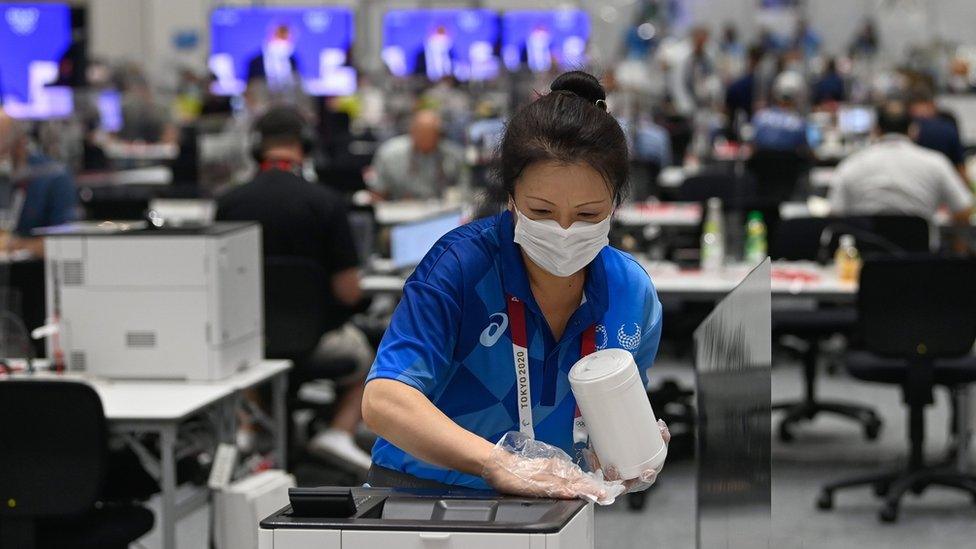
Cleaning takes place at the media centre in Tokyo
Given the backdrop, the whole process felt comforting and necessary.
We had made it through. Now just a case of three days hotel quarantine, then we would be free to cover an Olympics like no other.
How wrong we were.
Two days into quarantine I was awakened, from a jet lag slumber, by a text from my producer.
It was alerting me to a story about six Team GB athletes and two officials who had been identified as close contacts to a positive Covid case on our flight.
They were now self-isolating. The side eye emoji that accompanied the link said it all.
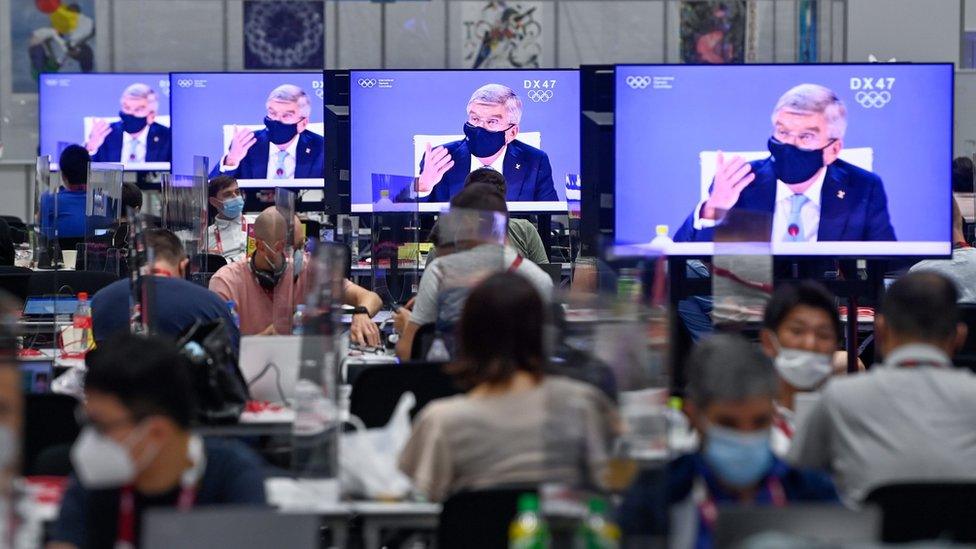
Journalists have been gathering at the Olympic Media Centre in Tokyo
More than 24 nervous hours passed and we heard nothing. It seemed to us that maybe the cases in question were situated in a different part of the plane and so we continued our preparation as normal.
Then the phone rang.
Not my usual work phone, but the Japanese phone provided by the BBC in order for us to stay in contact and register test results, etc.
As soon as the unfamiliar tone sounded, I knew it wasn't good news.
It was the voice of the BBC's Covid liaison officer. "Where are you? In your room? Good. Stay there, You've been identified as a close contact and we're trying to work out exactly what that means."
Suddenly the walls, in my already small room, started to close in. All the conversations we'd had that day about where we would film and what interviews we had planned started to feel irrelevant.
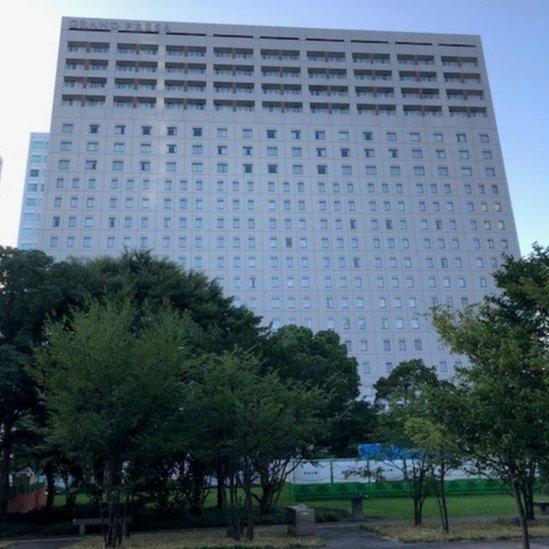
Chris and the BBC team will be confined to their rooms for two weeks
Over the next few hours it was confirmed we would be confined to our rooms for 14 days, starting on the day we arrived in the country.
My heart absolutely sank and in all honesty, some panic set in about how I would cope.
How would I get food? Could we exercise? Strictly in our room?
A year's preparation gone in a 45-second phone call.
Over the next few hours there followed a series of frantic calls and emails to get the answers to all of the questions. None of them were particularly welcome or comforting.
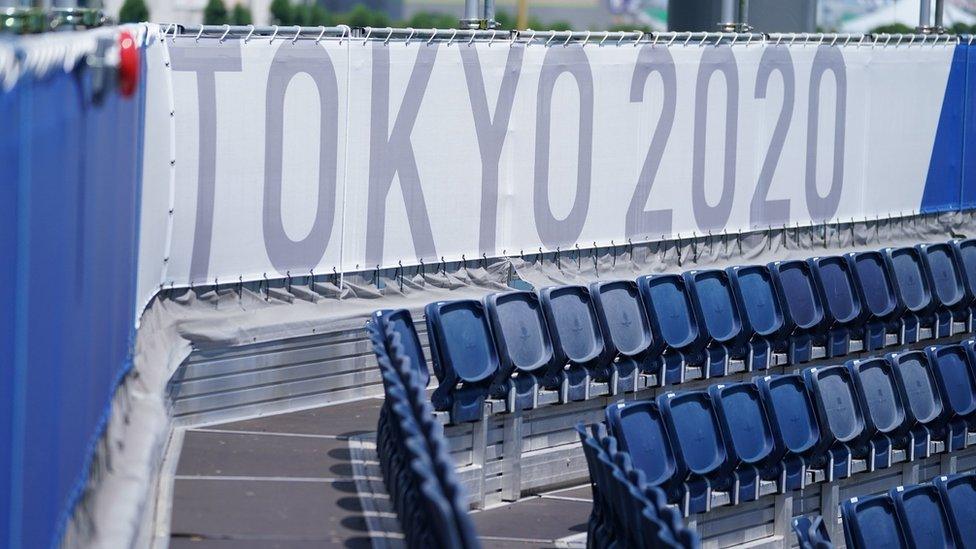
As we were digesting the news, it emerged that those Team GB members who were also identified could train in a bubble and most likely compete if they continued to provide negative tests.
I was clearly relieved for them. The Olympics should be about protecting the athletes and of course they should be given every opportunity to compete.
I would be lying if I said there wasn't also huge frustration about differences in the rules.
In the main, the Japanese public haven't supported these Games since the pandemic took hold in their country. Organisers need to prove to them that hosting the Games won't jeopardise their recovery.
Being strict on contact tracing, whilst also trying to maintain the integrity of the sport, is part of that.
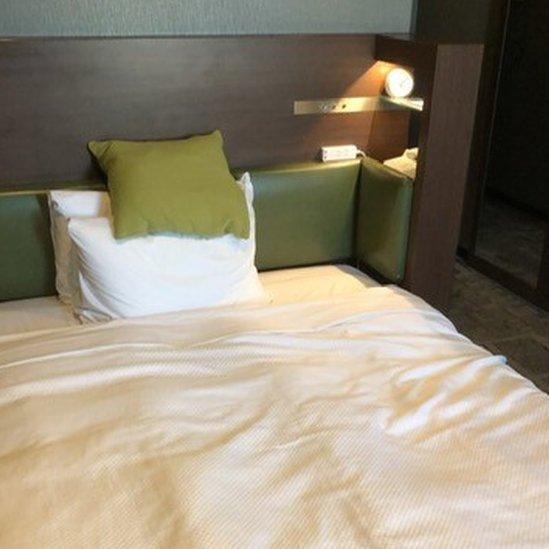
I could be angry, but there's nobody to be angry at. I'm just thankful our team continues to test negative.
Is the room small? Yes. Is the food being delivered to the door what I'd like? No.
But given the past 18 months, it could be worse.
As a journalist, the biggest frustration is watching the parade go by directly outside your window and not feeling part of it.
Not yet, anyway. Freedom comes on 30 July.